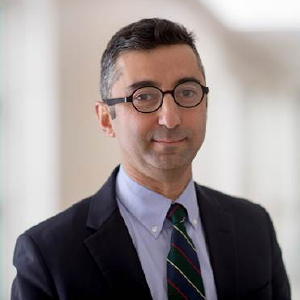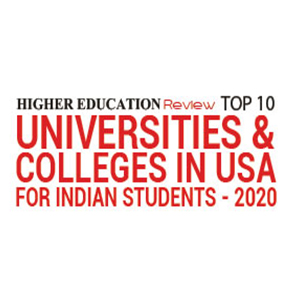Clarkson University: Designed To Provide Students With Knowledge And Skills Necessary To Thrive In Industry
By Kerop Janoyan, Dean
At Clarkson University, a word that you will see everywhere is 'ignite'. That's because Clarkson has created a suite of programs including research and scholarships where faculty and staff collaborate with students and outside experts that fires their creativity to solve real-work problems. This innovative design approach harkens all the way back to the institution's heritage.
In 1896, Clarkson University was set up by the family of Thomas S. Clarkson who believed that people should be diligent and faithful to their profession and community. In today's world, Clarkson strives to live a vision of technological education and sustainable economic development through teaching, scholarship, research and innovation that invests in a better future. The commitment and ability to kindle connections and innovations across disciplines, cultures and industry have helped Clarkson University to foster leadership, networking and problem-solving skills among their students. This global approach clearly shows in their unique teaching methodologies where students and faculty enjoy the freedom to stretch boundaries across traditional academic areas.
Clarkson offers a plethora of undergraduate and graduate courses offered through the schools representing different fields, including the School of Art & Sciences, Reh School of Business, Coulter School of Engineering, Beacon Institute of Rivers and Estuaries, Institute for a Sustainable Environment, and Institute for STEM education.
"All of our programs are designed and developed to help our students get comprehensive education and to equip them with 21st-century skills. Working in teams is a key feature of a Clarkson education", says Kerop Janoyan, Dean of Clarkson's Graduate School. "Learning how to work in groups where members have different knowledge bases, comes from different disciplines, and represent different cultures gives our graduates a strong, positive work ethic, which carries them forward in their careers, whether they go on to do research or work in the industry. They gain rigorous experience, honing the mindset and skillsets needed to make sense of complex systems, and develop creative solutions to today's most vexing challenges," he notes.
"All admitted applicants at Clarkson are considered for funding and scholarships. Usually, this funding takes the form of a partial scholarship which can reduce tuition by up to 30 percent"
Comparing the Indian higher education system and the teaching methodologies and industry exposure that Clarkson University offers, Dean Janoyan says, "Indian universities tend to have large classes and highly regulated curricula. At Clarkson, by contrast, classes are much smaller and students, therefore, get much more individualized attention. Progress in classes is not usually determined by one large exam at the end of the semester. Each professor circulates a syllabus at the start of the term which indicates the type of assignments students must complete. These include research papers, experiments, group assignments, and other projects, in addition to tests and quizzes. In some programs, internships are required, and in others, internships need to be done when the student's advisor recommends one. Internships can be paid or unpaid. In terms of placements, our Career Center hosts two career fairs each year which are attended by hundreds of companies. Often company representatives at Clarkson's Career Fair are alumni themselves who come back to attract future graduates to their companies and agencies. The quality of education offered by the University has helped the students of Clarkson University to earn salaries that are among the top 2 percent in the United States."
Clarkson offers great opportunities for international students, both in the classroom and during their free time. The diversity of different countries that include 300 international students from 52 countries in Fall 2019 means that a wide array of cultures is represented. In this, the Indian students make up the second biggest community and most Indian students opt for graduate courses in sciences and engineering, as well as professional programs. The popular M.S. in Data Analytics is a multidisciplinary major that draws a lot of attention and enrollment. To make the transition for international students easier, Clarkson University Student Success Center provides tutoring and study support to help students adjust to the US style of teaching and learning along with various other orientation programs.
All admitted applicants at Clarkson are considered for funding and scholarships. Usually, this funding takes the form of a partial scholarship which can reduce tuition by up to 30 percent. In research-oriented programs, a limited number of fully-funded research or teaching assistantships are also being offered. Most assistantships are awarded to Ph.D. students with a smaller number going to master's students. While it may be challenging to adjust to life and studies in the US, it won't be overwhelming or unfriendly at Clarkson. The students are promised world-class education that gives them the ability to compete academically and professionally at a global level and this will help them to be successful both in the personal and professional front.
Prof. Kerop Janoyan is Dean of the Graduate School and Professor in the Civil and Environmental Engineering Department at Clarkson University. As the Dean of the Graduate School, he oversees all professional and research-based graduate programs across the University at the main Potsdam campus, the Capital Region Campus in Schenectady, the Beacon Institute for Rivers and Estuaries in Beacon, NY, and online.
In 1896, Clarkson University was set up by the family of Thomas S. Clarkson who believed that people should be diligent and faithful to their profession and community. In today's world, Clarkson strives to live a vision of technological education and sustainable economic development through teaching, scholarship, research and innovation that invests in a better future. The commitment and ability to kindle connections and innovations across disciplines, cultures and industry have helped Clarkson University to foster leadership, networking and problem-solving skills among their students. This global approach clearly shows in their unique teaching methodologies where students and faculty enjoy the freedom to stretch boundaries across traditional academic areas.
Contemporary Style of Education
Clarkson offers a plethora of undergraduate and graduate courses offered through the schools representing different fields, including the School of Art & Sciences, Reh School of Business, Coulter School of Engineering, Beacon Institute of Rivers and Estuaries, Institute for a Sustainable Environment, and Institute for STEM education.
"All of our programs are designed and developed to help our students get comprehensive education and to equip them with 21st-century skills. Working in teams is a key feature of a Clarkson education", says Kerop Janoyan, Dean of Clarkson's Graduate School. "Learning how to work in groups where members have different knowledge bases, comes from different disciplines, and represent different cultures gives our graduates a strong, positive work ethic, which carries them forward in their careers, whether they go on to do research or work in the industry. They gain rigorous experience, honing the mindset and skillsets needed to make sense of complex systems, and develop creative solutions to today's most vexing challenges," he notes.
"All admitted applicants at Clarkson are considered for funding and scholarships. Usually, this funding takes the form of a partial scholarship which can reduce tuition by up to 30 percent"
Comparing the Indian higher education system and the teaching methodologies and industry exposure that Clarkson University offers, Dean Janoyan says, "Indian universities tend to have large classes and highly regulated curricula. At Clarkson, by contrast, classes are much smaller and students, therefore, get much more individualized attention. Progress in classes is not usually determined by one large exam at the end of the semester. Each professor circulates a syllabus at the start of the term which indicates the type of assignments students must complete. These include research papers, experiments, group assignments, and other projects, in addition to tests and quizzes. In some programs, internships are required, and in others, internships need to be done when the student's advisor recommends one. Internships can be paid or unpaid. In terms of placements, our Career Center hosts two career fairs each year which are attended by hundreds of companies. Often company representatives at Clarkson's Career Fair are alumni themselves who come back to attract future graduates to their companies and agencies. The quality of education offered by the University has helped the students of Clarkson University to earn salaries that are among the top 2 percent in the United States."
Transcending Global Higher Education
Clarkson offers great opportunities for international students, both in the classroom and during their free time. The diversity of different countries that include 300 international students from 52 countries in Fall 2019 means that a wide array of cultures is represented. In this, the Indian students make up the second biggest community and most Indian students opt for graduate courses in sciences and engineering, as well as professional programs. The popular M.S. in Data Analytics is a multidisciplinary major that draws a lot of attention and enrollment. To make the transition for international students easier, Clarkson University Student Success Center provides tutoring and study support to help students adjust to the US style of teaching and learning along with various other orientation programs.
All admitted applicants at Clarkson are considered for funding and scholarships. Usually, this funding takes the form of a partial scholarship which can reduce tuition by up to 30 percent. In research-oriented programs, a limited number of fully-funded research or teaching assistantships are also being offered. Most assistantships are awarded to Ph.D. students with a smaller number going to master's students. While it may be challenging to adjust to life and studies in the US, it won't be overwhelming or unfriendly at Clarkson. The students are promised world-class education that gives them the ability to compete academically and professionally at a global level and this will help them to be successful both in the personal and professional front.
Kerop Janoyan, Dean
Prof. Kerop Janoyan is Dean of the Graduate School and Professor in the Civil and Environmental Engineering Department at Clarkson University. As the Dean of the Graduate School, he oversees all professional and research-based graduate programs across the University at the main Potsdam campus, the Capital Region Campus in Schenectady, the Beacon Institute for Rivers and Estuaries in Beacon, NY, and online.


